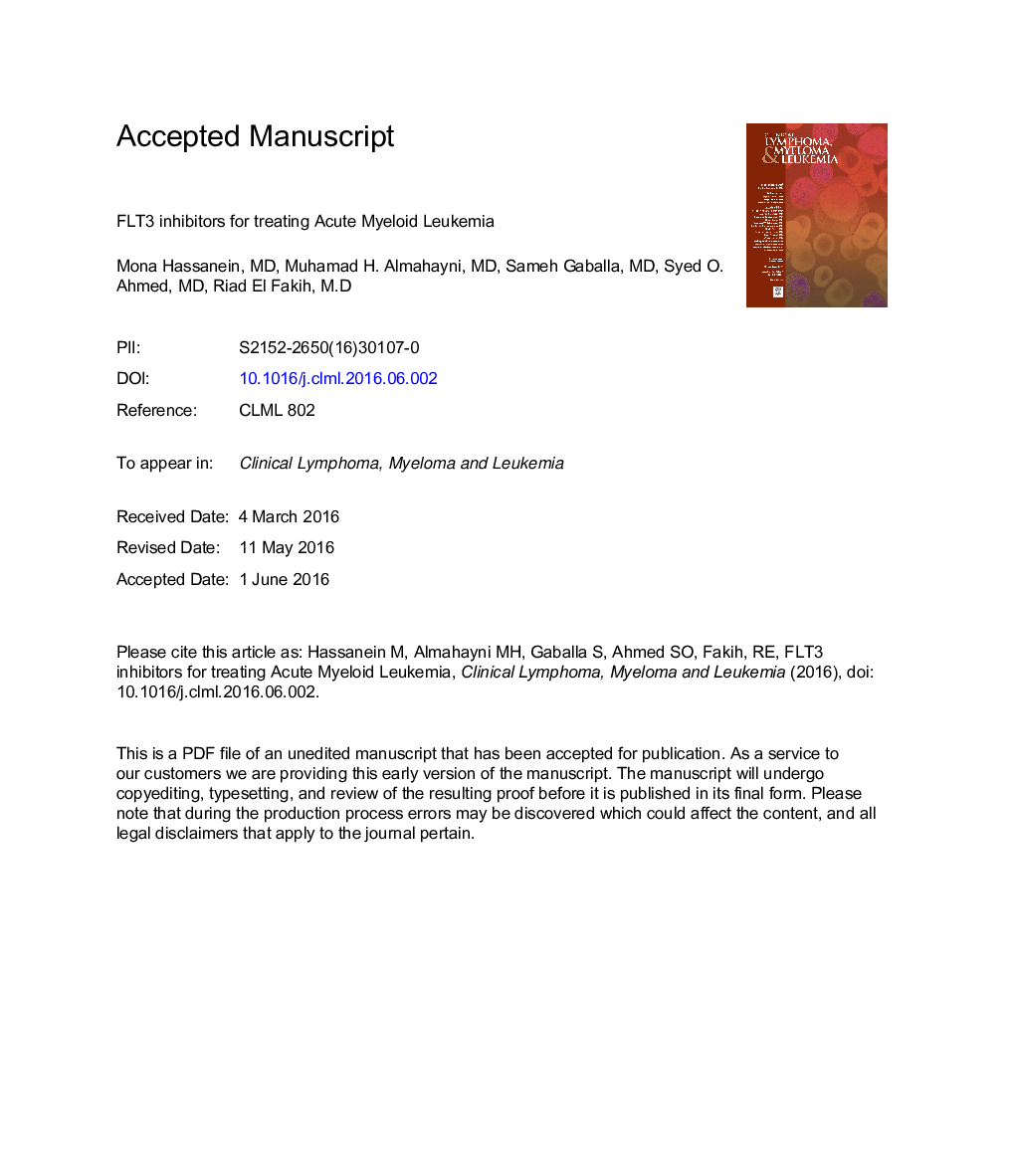| Article ID | Journal | Published Year | Pages | File Type |
|---|---|---|---|---|
| 5582029 | Clinical Lymphoma Myeloma and Leukemia | 2016 | 18 Pages |
Abstract
FLT3 (Fms-like tyrosine kinase 3) inhibitors are tyrosine kinase inhibitors. The first-generation FLT3 inhibitors were developed several years ago and include midostaurin, lestaurtinib, sunitinib, and sorafenib. They are relatively nonspecific for FLT3, with other potential targets that include platelet-derived growth factor receptor, vascular endothelial growth factor receptor, KIT, and Janus kinase 2. The second-generation inhibitors, including quizartinib, crenolanib, PLX3397, and ASP2215, are more potent and selective than the first-generation inhibitors. The greater potency and selectivity promises greater efficacy in FLT3-mutated acute myelogenous leukemia (AML) (particularly in patients with a greater allele burden) and less toxicity. A number of receptor tyrosine kinase inhibitors are being studied across virtually all disease settings, including frontline, relapsed and refractory, and maintenance, mainly in patients with FLT3-mutated AML. The future of FLT3 inhibitors in the treatment of AML, in combination with chemotherapy or stem cell transplant, appears bright. The present report reviews the current data on FLT3 inhibitors.
Keywords
Related Topics
Health Sciences
Medicine and Dentistry
Anesthesiology and Pain Medicine
Authors
Mona Hassanein, Muhamad H. Almahayni, Syed O. Ahmed, Sameh Gaballa, Riad El Fakih,
